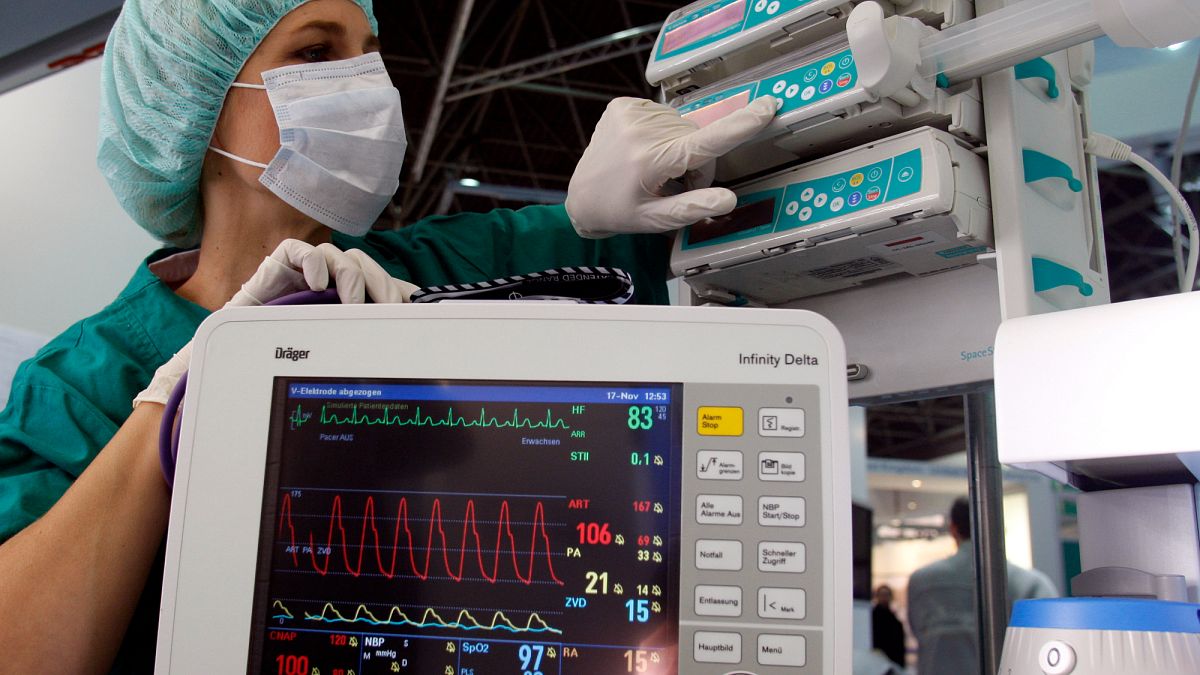EU member states’ representatives voted this week for retaliatory measures against Chinese restrictions on European medical device manufacturers, diplomatic and EU sources confirmed to Euronews.
This followed an investigation by the European Commission found “clear evidence” that China unfairly blocked EU-made medical devices from its procurement market.
It represents the first countermeasure implemented using an International Procurement Instrument (IPI), which came into force in August 2022, designed to ensure fair access for EU firms to procurement opportunities outside the bloc.
Ambassadors adopted the proposal midweek, but the details are expected to be published in the EU’s Official Journal in the coming days.
“We had truly hoped that the International Procurement Instrument process would lead to more meaningful dialogue and progress with China, but unfortunately, that hasn’t happened yet,” said Oliver Bisazza, CEO of MedTech Europe, the EU’s association of medical device manufacturers.
Bisazza wants to see the full details before reacting, but he pointed out that medical device companies remain committed to constructive engagement between the EU and China.
“This sector is vital for saving and improving people’s lives and maintaining essential healthcare infrastructure, offering crucial services. This is something both parties should consider,” he added.
Mounting barriers
EU companies have long struggled to gain access to China’s public procurement market, despite China being one of Europe’s largest trading partners for medical devices – accounting for 11% of export destinations in 2022.
The Commission’s investigation focused on China’s government procurement law, which enforces the so-called “Buy China” policy, requiring public entities to prioritise domestic products and services, with limited exceptions.
The probe found that EU manufacturers face a range of obstacles, including opaque approval systems, discriminatory certification procedures, vague national interest clauses used to exclude foreign bidders, and pricing pressures that are often unfeasible for European firms.
One stark example: in Guangdong Province, the number of “approved” imported medical devices dropped from 132 in 2019 to just 46 in 2021, highlighting the tightening of market access for EU firms.
Fallout for EU-China relations
The China Chamber of Commerce to the EU responded with concern, tweeting that the IPI measures send “a troubling signal” for bilateral trade ties. In a follow-up statement, the Chamber argued that the targeted use of the IPI risks becoming a de facto trade barrier and urged the EU to reconsider the necessity and long-term impact of such actions.
The measures come at a sensitive moment in EU-China relations, which are currently undergoing a tentative diplomatic reset. After years of friction, the two sides have stepped up engagement to manage long-standing disputes.
Much of this renewed dialogue is a response to shifting global dynamics, including the Trump-era trade war and broader US-China tensions, which have prompted Brussels to pursue a more balanced approach.
A key milestone in this reset is the upcoming EU-China Summit, now confirmed to take place in Beijing in the second half of July 2025.
Despite the escalating procurement dispute, a Commission spokesperson downplayed concerns that the IPI measures would damage broader trade relations.
“We’ve been making very clear to any global partners with whom we believe there is a problem as regards to the level playing field for procurement: should those problems not be removed, we would be forced to take action,” said the spokesperson.
On Wednesday, EU Trade Commissioner Maroš Šefčovič met with Chinese Minister Wang Wentao on the sidelines of the OECD Ministerial Council – their third meeting overall and second in person.
According to the Commission, the talks covered a wide range of critical bilateral issues as both sides work to ensure progress ahead of the July summit.
